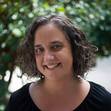EU037: Ten Questions with Carol Black
 Carol Black unschooled her two daughters, now 22 and 26. Years ago she was in a teacher education program, but when she read John Holt’s How Children Fail the light bulb went off and she dropped out. Since then she has written some wonderfully insightful essays about unschooling, which you can read on her website, carolblack.org, and she directed the fascinating documentary film, Schooling the World.
Carol Black unschooled her two daughters, now 22 and 26. Years ago she was in a teacher education program, but when she read John Holt’s How Children Fail the light bulb went off and she dropped out. Since then she has written some wonderfully insightful essays about unschooling, which you can read on her website, carolblack.org, and she directed the fascinating documentary film, Schooling the World.
Quote of the Week
“One of the things that is most disturbing to me — on a level of justice and morality — is that you have an institution that is in place globally that is labelling millions and millions and millions of innocent people as failures.” ~ Manish Jain
Ten Questions for Carol
1. Can you share with us a bit about you and your family, and how you came to unschooling?
2. What are your children up to right now? Looking back, can you see a thread of interests and activities that has brought them to this point?
3. I love the bigger picture lens through which you see and talk about unschooling—through the essays on your website and through your film, Schooling the World. What brought you to explore how children learn across different cultures and incorporate that into your view of unschooling?
4. I’ve seen your wonderful essay, A Thousand Rivers: What the modern world has forgotten about children and learning, being shared in unschooling circles for years. In it you make the point that people today don’t know what children are actually like—they only know what children are like in schools. Your classic quote is, “Collecting data on human learning based on children’s behavior in school is like collecting data on killer whales based on their behavior at Sea World.”
Controlling a child’s learning—content, pace, and style—has such a profound effect on how they see themselves, as both learners and people, doesn’t it?
5. Another great observation you share about unschooling children is that they want their learning to be their own. Can you talk about some of the ways we can interfere with that?
6. You published a new essay on your website earlier this year, On the Wildness of Children: The revolution will not take place in a classroom. In it, you note that compulsory schooling is basically a social experiment originally conceived in the late 1800s to adapt children to the new industrial age—to train them in the skills needed for this new era of manufacturing. Yet in only about seven generations, school has become an integral part of childhood, this background forgotten.
With unschooling, we choose to leave this experiment behind and look at how children are naturally wired to learn. We soon come to see that learning isn’t really a special activity at all, but a natural by-product of being alive in the world, and spending much of their days in, what researcher Suzanne Gaskins calls, a state of “open attention.” Can you describe what that looks like?
7. Now I’d like to shift and talk about your documentary, Schooling the World. Here’s something you wrote by way of introduction: “The film “Schooling the World” asks us to re-examine some of our deepest assumptions about knowledge, learning, ignorance, poverty, success, and wealth. The purpose of the film is not to provide all the answers, but to ask a question, to open a conversation. Our hope is that you will be able to use the film with your friends, colleagues, students, or organization to begin conversations that will be deep, challenging, and inspiring.” I love that your goal was to spark conversations. So let’s do that.
First, let’s talk about the culture of schooling. What are some of the differences between the culture of schooling, which basically defines modern childhood, and the culture of childhood in a traditional society?
8. In conversations about traditional cultures, it is regularly suggested that those who appreciate their ways are romanticizing traditional cultures, downplaying problems like infant mortality and infectious diseases. What the film brings out so clearly is that maybe we are romanticizing our own culture and our version of education when we export it overseas. We’ve seen through experience that the school structure also brings with it consequences like lasting damage to children’s creativity, and branding so many children as failures. We also often fail to consider the depth, breadth and complexity of the knowledge systems that we are displacing.
I love the point Wade Davis makes at the end of the film: “These peoples, these cultures, are not failed attempts at being us—they are unique answers to the fundamental question, ‘What does it mean to be human and alive?’ Their answers have allowed them to live sustainably on the planet for generations.”
How might we move beyond romanticizing either side of this cultural confrontation and have deeper conversations about how we connect and engage with other cultures around the world?
9. Can you share a bit about what the filming experience was like? Your daughters came along, yes?
10. Looking back now, what, for you, has been the most valuable outcome from choosing unschooling?
Links to things mentioned in the show
Carol’s essay: A Thousand Rivers: What the modern world has forgotten about children and learning
Carol’s essay: On the Wildness of Children: The revolution will not take place in a classroom
Carol’s documentary: Schooling the World (You can watch it free at this link for a limited time—if it’s no longer free, I think it’s worth the purchase to watch!)
Schooling the World Facebook page
Episode Transcript



